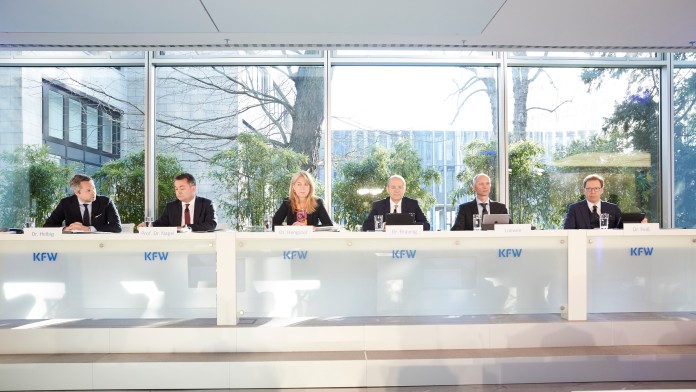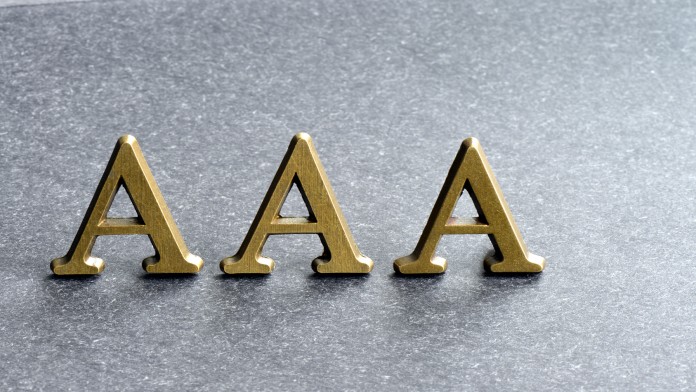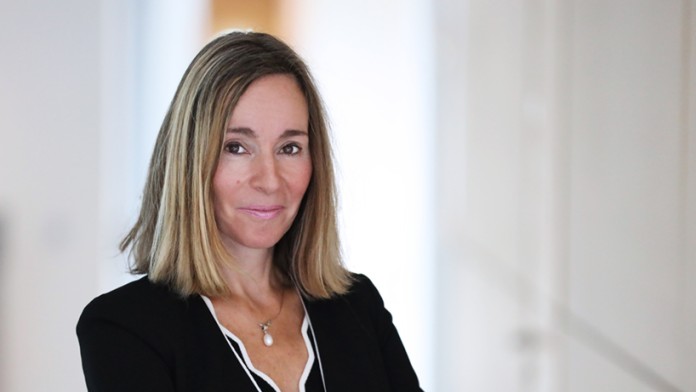Press Release from 2019-02-13 / Group, Sustainability
Promotional year 2018: KfW places promotional focus on digitalisation, sustainability and Africa
- Total promotional business volume reaches EUR 75.5 billion
- Growth in international business up strongly by +20%
- EUR 46 billion for domestic promotion
- Successful start of KfW Capital
- High demand for new Baukindergeld
KfW achieved a total volume of EUR 75.5 billion in the 2018 promotional year (2017: EUR 76.5 billion). Financing of EUR 46.0 billion was committed for domestic promotion. In viewlight of the robust economic growth and good financing conditions for private and commercial investors, KfW thus scaled back its promotion (2017: EUR 51.8 billion).
However, segments that provide impetus for the future were expanded. For example, the ERP Digitalisation and Innovation Loan reported significant growth amounting to EUR 2.9 billion (2017: EUR 1.5 billion). The subsidiary KfW Capital also got off to a successful start in 2018 and will considerably expand its venture capital and equity financing activities. Parallel to the subsidiary’s foundation, the VC commitment increased significantly (EUR 141 million, +34% compared to the previous year).
There is also very high demand for the new Baukindergeld (benefit) scheme launched in September, which helps families buy their own homes. By the end of the year, about 56,000 funding approvals had been made. Currently, there are already 68,125 commitments.
International business grew by 20% to reach a volume of EUR 28.3 billion (2017: EUR 23.5 billion). It was marked by a 29% increase in commitments in export and project finance to EUR 17.7 billion (2017: EUR 13.8 billion). At EUR 3.4 billion, the Power, Renewables and Water business segment again accounted for the largest share (2017: EUR 2.6 billion). It includes a number of onshore and offshore wind farms, which underscores KfW IPEX-Bank's efforts to make a significant contribution to environmental protection and climate change mitigation.
The promotion of developing countries and emerging economies grew by 8% to EUR 10.6 billion (2017: EUR 9.7 billion). EUR 8.7 billion of this amount was accounted for by KfW Development Bank and EUR 1.9 billion by DEG. Financial Cooperation continued its structural growth trend, mainly through commitments for Africa and the Middle East. This includes projects to boost efficiency in the water sector, the promotion of SMEs and the green economy.
As in previous years, KfW continued to focus its promotional activities in 2018 on qualitative targets such as support for climate change mitigation and environmental protection. The percentage of financing of projects in this area is 40%. Just as important for KfW is support for small and medium-sized enter-prises in investment finance. Overall, the ratio of KfW financing related to SMEs in Germany was 41%.
Dr Günther Bräunig, Chief Executive Officer of KfW, said: “2018 was a successful year. Thanks to the good economic conditions, we were able to focus on issues of particular relevance for the future, i.e. innovation and digitalisation in Germany, as well as on sustainably improving living conditions in Africa and other partner countries of our Financial Cooperation. We were thus able to pursue our promotional mandate and are very happy with the results.”
Details on the business sectors' promotional activities
The SME Bank & Private Clients business sector generated a total promotional volume of EUR 36.3 billion (2017: EUR 42.4 billion). The SME Bank segment contributed a promotional business volume of EUR 17.2 billion (2017: EUR 21.3 billion).
The promotional priority area of start-ups and general corporate finance recorded a figure of EUR 6.7 billion (EUR 9.6 billion). The KfW Entrepreneur Loan experienced a downturn (EUR 2.5 billion; previous year: EUR 5.1 billion). This is primarily due to the generally good terms of financing for companies. Financing for business start-ups, at EUR 3.6 billion, was able to maintain last year's strong performance (EUR 3.8 billion).
At EUR 3.1 billion, commitments in the priority area of innovation notably exceeded the previous year’s figure of EUR 1.9 billion. Most of the demand was focused on the ERP Digitalisation and Innovation Loan, which was introduced in the second half of 2017.
The priority area of energy efficiency & renewables achieved a total commitment volume of EUR 7.4 billion (EUR 9.8 billion) for commercial customers. The decline is mainly due to weakening demand in the renewable energy sector brought about by the Renewable Energy Sources Act.
The promotion of corporate energy efficiency became even more attractive at the end of 2018 with the “Energy Efficiency and Process Heat from Renewable Energies in Industry” programme, so that we expect business to grow in 2019.
The private clients segment generated a promotional business volume of EUR 19.1 billion (2017: EUR 21.1 billion). The lion's share, EUR 11.5 billion (2017: EUR 13.8 billion), is accounted for by the priority area of energy efficiency & renewables with the loan programme “Energy-efficient Construction and Refurbishment”. While the energy-efficient construction part of the programme at EUR 7.7 billion fell short of the very strong level of the previous year (EUR 10.3 billion), demand in particular for the programmes relating to the energy-efficient refurbishment of existing properties increased (EUR 3.8 billion; previous year EUR 3.5 billion).
A promotional business volume of EUR 5.0 billion (previous year: EUR 4.7 billion) was provided in the housing & living priority area, which also includes the newly introduced Baukindergeld scheme. Since September 2018, families in Germany have been able to apply online to the Baukindergeld (benefit) scheme to acquire their own homes and provide for old age. Baukindergeld was launched as a priority of the German Federal Government in this legislative period and is in high demand. Over 56,000 applications with a volume of around EUR 1.2 billion had been approved by the end of the year.
The previous year's level was maintained in the priority area of education, with a promotional business volume of EUR 2.1 billion (EUR 2.2 billion), enabling KfW to support 93,000 students and people in further vocational training.
The newly formed Customised Finance & Public Clients business sector generated a commitment volume of EUR 9.5 billion at the end of the year, which means that new commitments are slightly higher than in the respective prior-year period (EUR 9.3 billion).
The commitment volume for municipal & social infrastructure at EUR 3.5 billion was slightly lower (previous year EUR 3.9 billion) as a result of the good financial situation of public budgets, but still at a high level. In addition to basic funding for general municipal infrastructure investments and municipal and social enterprises, the promotion of energy-efficient construction and refurbishment at municipal level also accounted for a significant share at EUR 0.8 billion.
With a contract volume of EUR 5.9 billion, individual financing for banks and promotional institutions of the federal states significantly exceeded the comparable prior-year figure of EUR 4.9 billion. Growth was stimulated in particular by increased demand for global loans for leasing investments and refinancing of export credits covered by federal guarantees. General funding of promotional institutions of the federal states reached a contract volume of EUR 2.9 billion (2017: EUR 3.9 billion).
The commitment volume for customised corporate finance totalled EUR 0.2 billion. The previous year (EUR 0.5 billion) was marked by two large individual commitments in the offshore wind energy sector.
Promotion in the KfW Capital business sector increased by one third (EUR 141 million, 2017: EUR 105 million). KfW Capital was established in July 2018 as a 100% subsidiary of KfW and seamlessly absorbed the active investment business in October. KfW Capital will further expand venture capital and equity finance with support of the ERP Special Fund: in the next ten years, KfW Capital will invest around EUR 2 billion in venture capital and venture debt funds to expand access to capital for young, innovative technology companies in the growth stage in Germany.
International financing:
In the Export and project finance business sector, which is handled by KfW IPEX-Bank, new commitments of EUR 17.7 billion were achieved (2017: EUR 13.8 billion) in a market environment characterised by persistently intense competition. Most of the transactions were concluded in consortia with other banks. As in the previous year, the Power, Renewables and Water business segment again accounted for the largest share of commitments at EUR 3.4 billion (2017: EUR 2.6 billion). This includes a number of onshore and offshore wind farms, which underscores KfW IPEX-Bank's efforts to make a significant contribution to environmental protection and climate change mitigation. KfW IPEX-Bank also supports efforts to improve the sustainability of the maritime industry in ship financing: in addition to measures to increase efficiency and reduce emissions in ship operation, it increasingly finances new ships with climate-friendly propulsion technologies such as liquefied natural gas (LNG).
KfW Development Bank continued its positive development in commitments. In 2018, KfW provided around EUR 8.7 billion in financing to developing coun-tries and emerging economies on behalf of the German Federal Government (2017: EUR 8.2 billion). Around 58% was earmarked for climate change mitigation and environmental protection projects. Nearly 13% of new commitments are allocated for directly supporting refugees in developing countries. Nearly 48% of all new commitments went to development projects in Africa and the Middle East; 71% of the German Federal Government's budget funds were channelled to this region.
In 2018, DEG committed a record volume of around EUR 1.9 billion for investments of private enterprises in developing countries and emerging economies (2017: EUR 1.6 billion). New business in Africa also set a new record of EUR 438 million (2017: EUR 265 million). From a regional view, Latin America accounted for the largest share of financing in 2018 with EUR 579 million (2017: EUR 502 million). New business in Eastern Europe increased to EUR 245 million (2017: EUR 85 million). Around EUR 967 million of DEG commitments in 2018 were made for small and medium-sized enterprises, an important driver of economic development.
As in the previous year, the Financial markets business sector in 2018 invest-ed a total of around EUR 1.5 billion for promotional business via the capital markets. Around EUR 1.1 billion of this total was used in securitisation transactions to promote SMEs. KfW supported climate change mitigation and environ-mental protection by investing EUR 0.4 billion in green bonds.
For 2019, KfW plans to invest a total of around EUR 1 billion in SME securitisations and a new investment of EUR 0.3 billion for its green bond portfolio.
In order to fund its promotional business, KfW raised funds of EUR 76.1 billion on the international capital markets in 2018. A total of 144 bonds were issued in 12 currencies. Around 88% of the funds were raised in the core currencies of the euro and US dollar. The euro accounted for a record 61% of the total funding volume (2017: 53%). With issues of EUR 1.6 billion in 2018, the outstanding volume of “Green Bonds – Made by KfW” rose to a total of EUR 14.5 billion.
For 2019, KfW plans to raise funds of around EUR 80 billion on the capital markets. The funding requirement is mainly determined by planned new business in lending, maturities of the bank's own bonds, and early repayments of loans.






Share page
To share the content of this page with your network, click on one of the icons below.
Note on data protection: When you share content, your personal data is transferred to the selected network.
Data protection
Alternatively, you can also copy the short link: https://www.kfw.de/s/enkBbm2w.B74A
Copy link Link copied